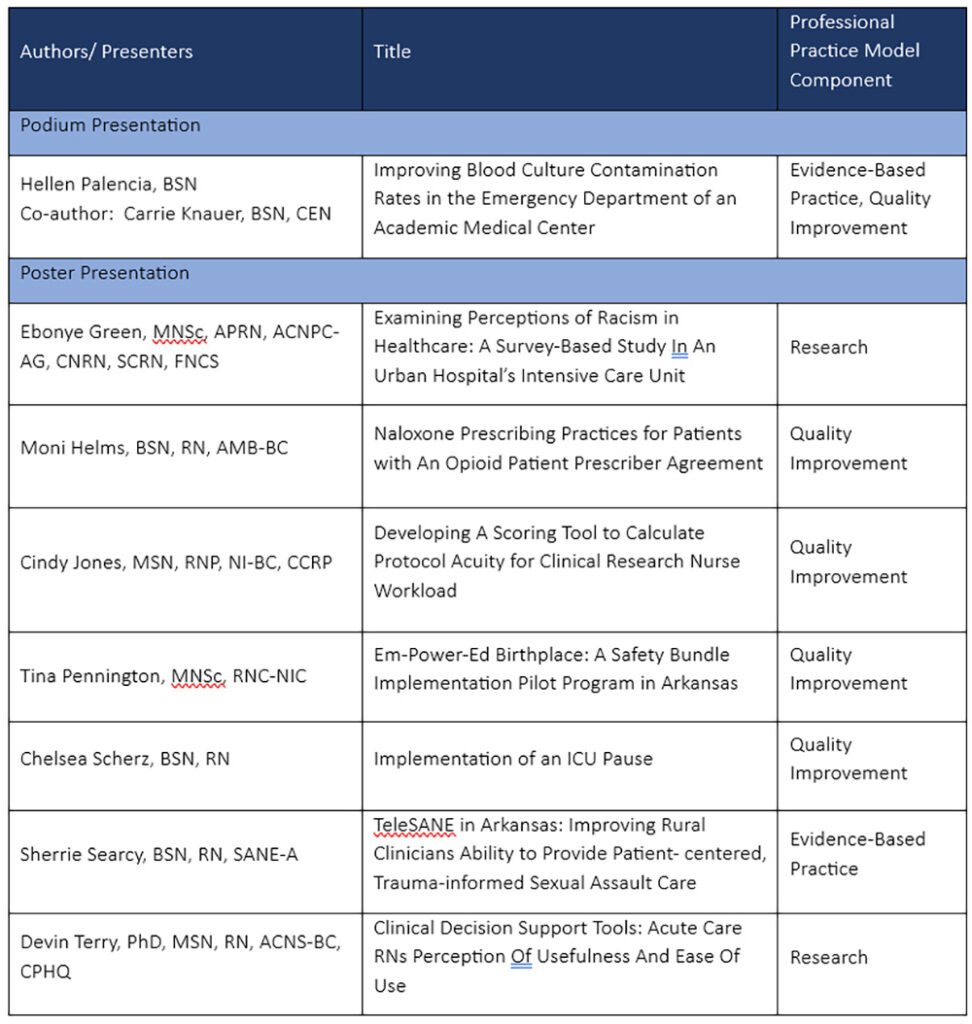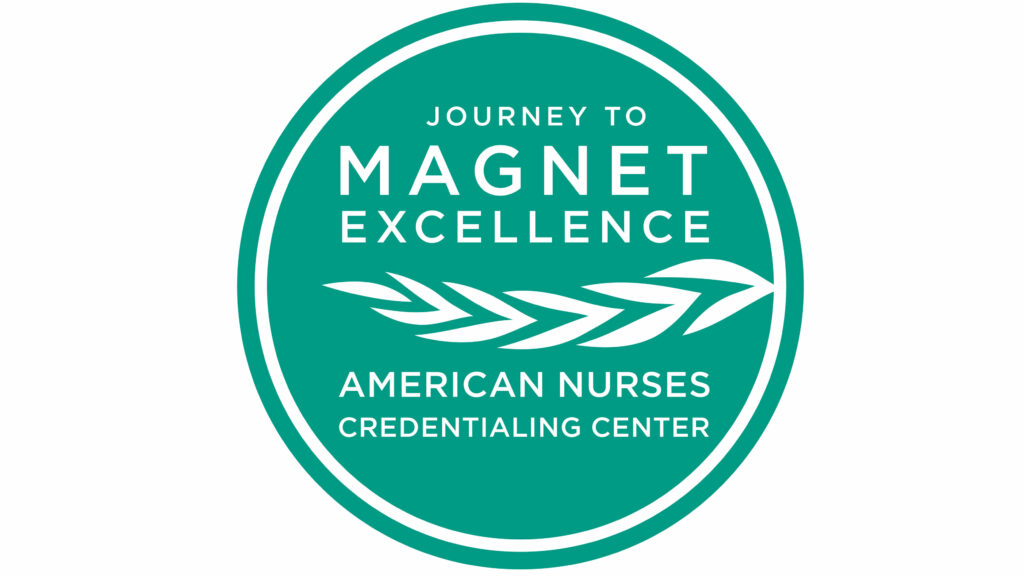UAMS had several nurses participate in the Arkansas Nursing Research Day, held on April 5, 2024, on the 12th floor of Jack Stephens Spine Institute. The theme for the Research Day was “The Essence of Nurses: Nurses as Active Drivers of Positive Change in Health Care”.
Hellen Palencia, BSN, Clinical Specialist for Emergency Department presented a podium presentation of how the ED improved blood culture contamination rates through a combination of evidence-based practice and quality improvement. The ED struggled with high blood culture contamination rates for several years. Dr. Ryan Dare from Internal Medicine shared during the presentation that, a contaminated blood culture results in inappropriate antibiotic therapy, wasted hospital services, risks of declining health in the patient, and an extra $8,000 cost to the hospital per contamination.
Hellen Palencia, BSN, Clinical Specialist for Emergency Department presenting “Improving Blood Culture Contamination Rates in the Emergency Department.”
In October 2021, the contamination rate for the ED was 4.76% and had been as high as 10.35% in June 2020. Christina Leisenring, MSN, RN, CEN, then CSM of the ED, found an article in the Infectious Disease Society of America (IDSA) and shared it with the Blood Culture Workgroup via email.
This article stated that the most frequent causative organisms of blood culture contamination are bacteria that are present in the subdermal layers of the skin, out of reach of topical antiseptics. The evidence suggested collecting a few milliliters of blood into a “waste” tube before filling blood culture bottles. This would reduce contamination by capturing the commensal skin bacteria and diverting them away from the bottles, which would now only contain blood aspirated from the true bloodstream. The workgroup agreed that it was worth trying and Sarah Goodhart, MSN, RN, CPCP-AC, RNIV Clinical Nurse, spearheaded the project. It was immediately successful, and the ED saw contamination rates begin to decrease over time. To sustain this improvement Carrie Knauer BSN, CEN, Clinical Services Manager, and Hellen Palencia, BSN, Clinical Specialist, implemented a tiered approach of communication and coaching for employees experiencing blood culture contaminations during draws. This dedicated coaching, counseling, re-education, and monitoring led to a further decrease in contamination rates to 1.55% in December 2023, with an overall average of 2.98% for 2023.
Nursing is in a unique position to observe the things that impact our patients and their outcomes. Clinical research builds on the foundational knowledge needed to provide high-quality care to our patients and adds to the body of literature. Participation in nursing research also expands your professional development. New Knowledge and Innovation is a core tenet of Nursing Excellence, by conscientiously integrating evidence-based practice and nursing research into clinical care. If you are considering nursing research, implementing an evidence-based practice, or engaging in quality improvement, the Center for Nursing Excellence has resources on our website.
Congratulations to all the UAMS Nurses who participated in the 2024 Arkansas Nursing Research Day!
Moni Helms, BSN, RN, AMB-BC
Devin Terry, PhD, MSN, RN, ACNS-BC, CPHQ

